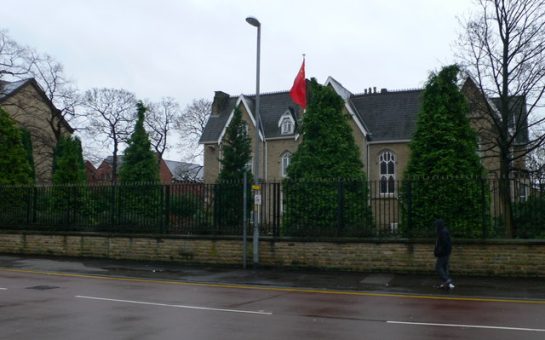The Chinese president visited the National Graphene Institute (NGI) at the University of Manchester today to learn about future graphene applications being developed in the city.
Xi Jingping was welcomed by Professor Dame Nancy Rothwell, president and vice-chancellor of the university, during the first visit of any Chinese president to Manchester.
The visit took place on the same day that Chinese electronics giant Huawei, China’s largest mobile phone manufacturer, announced a partnership with the NGI to research graphene and related 2D materials.
Prof Rothwell said during the visit: “The University has a rich heritage and is proud of the breadth and depth of its links with China. We have almost 4,000 students from Mainland China and 170 Chinese staff.
“Our research and innovation spans many areas. We have identified five that are distinctive and world leading: advanced materials, including graphene, addressing global inequalities, energy, industrial biotechnology and cancer.
“In each of these and in other areas we have strong collaborations with leading universities and companies in China.
President XI was also welcomed by George Osborne, Viscount Hood, the Queen’s Lord-in-waiting, the Chief Commercial Secretary to the Treasury, Lord Jim O’Neill and the Minister for the Northern Powerhouse, James Wharton.
Graphene is the world’s first two-dimensional material, first isolated in Manchester.
It is 200 times stronger than steel, more conductive than copper, and has changed the way scientists and industry approach materials science.
Nobel Laureates Professor Andre Geim and Professor Kostya Novoselov also welcomed Mr Xi to the University and were joined by senior government officials from both the UK and China.
Mr Novoselov highlighted current graphene research and University links with Chinese business.
Before presenting the President with a gift of traditional Chinese-style artwork, which Kostya himself had painted using graphene paint.
Led by University representatives, Mr Xi was shown demonstrations of a raft of graphene-based prototypes.
This included a mobile phone with dramatically increased charging capabilities thanks to a graphene supercapacitor, super-efficient street lighting and pioneering cancer treatments utilising graphene for improved drug delivery.
President Xi also enjoyed a tour of the NGI’s 1,500 square metres of cleanroom laboratory space, the largest academic area of its kind in the UK dedicated to graphene research.
